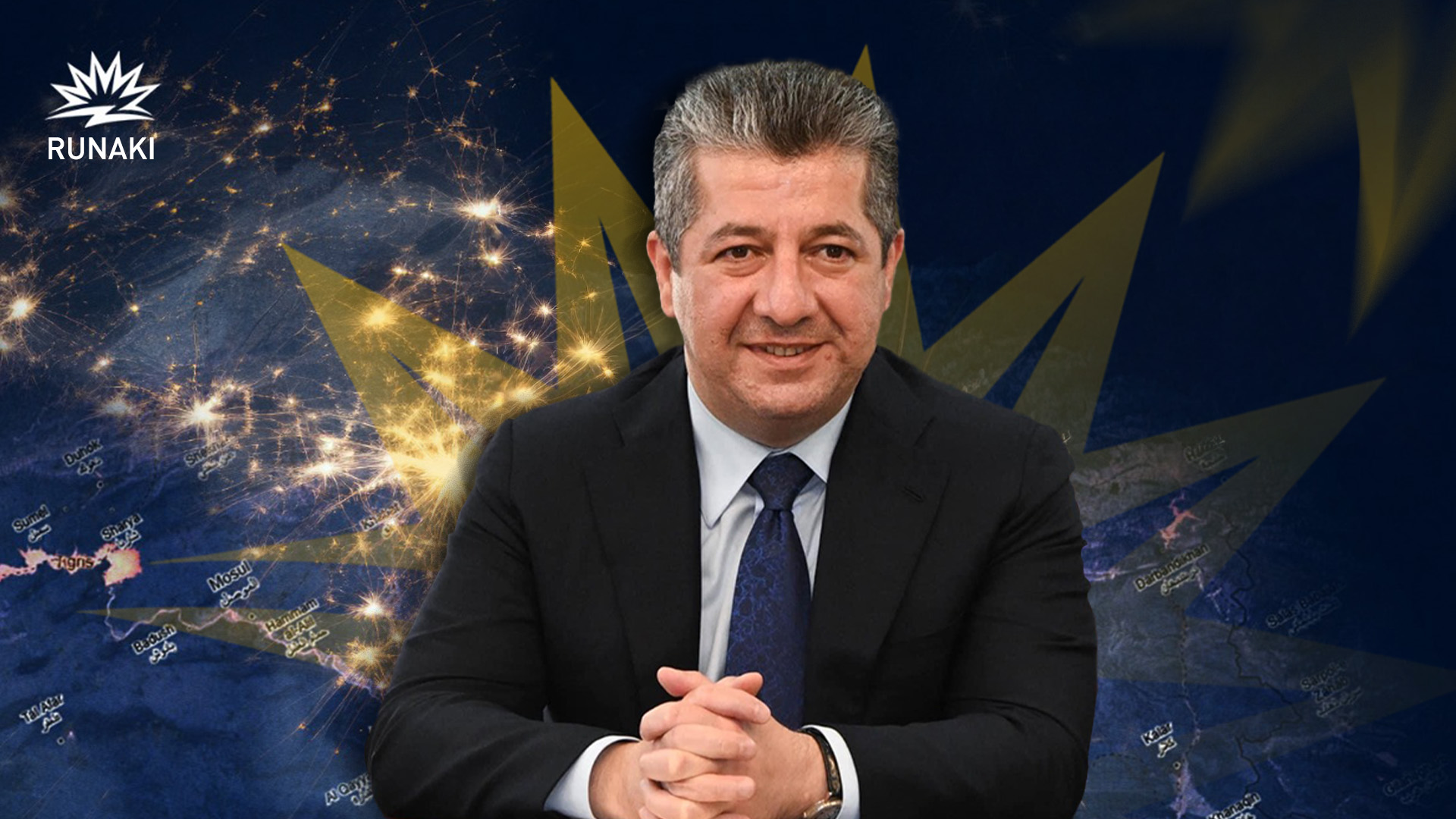A Promise Delivered: PM Barzani’s Vision of 24-Hour Electricity Turns Into Reality
PM Masrour Barzani's Runaki program has delivered 24-hour electricity to nearly 4 million residents across Erbil, Sulaimani, Duhok, and Halabja, eliminating over 3,200 generators and cutting CO2 emissions by 600,000 tons annually.

ERBIL (Kurdistan24) – A promise made in 2023 by Kurdistan Region Prime Minister Masrour Barzani has taken tangible shape, with the government’s landmark Runaki program steadily transforming the lives of millions. What began as a pledge to bring round-the-clock electricity to every home and business has become a reality in multiple provinces and districts, and is on track to be fully achieved by the end of 2026.
Electricity, as Prime minster Barzani declared in his initial announcement, is “one of the essential needs that people everywhere expect to have 24 hours a day.” At the time, he asked a simple question: “Can we achieve this or not? I say yes, we can.” In October 2024, he launched the Runaki initiative, promising to return to the people not with words, but with evidence.
The program’s achievements are already historic. In August 2025, Prime Minister Barzani announced that the centers of Erbil, Sulaimani, Duhok, and Halabja had been connected to 24-hour electricity ahead of schedule. Halabja was singled out as the first province in both the Kurdistan Region and Iraq to achieve uninterrupted electricity, a milestone praised widely across the region.
According to official statistics from the Ministry of Electricity, nearly four million citizens—representing more than half of the Kurdistan Region’s population—now benefit from uninterrupted electricity. This includes 1.93 million citizens in Erbil through 504,000 subscribers, 1.34 million in Sulaimani with 351,000 subscribers, 351,000 in Duhok with 94,000 subscribers, and 139,000 in Halabja with 38,000 subscribers.
Meanwhile, the work is intensifying, with electricity repair teams repairing transformers and feeders in districts to ensure a robust grid before the program’s arrival in.
One of the most immediate impacts of the Runaki program has been the shutdown of private diesel generators, long considered a scourge to the region’s environment and public health. To date, more than 3,200 generators have been decommissioned: 2,197 in Erbil (cutting 410,000 tons of CO₂ annually), 604 in Sulaimani (112,000 tons), 356 in Duhok (63,000 tons), and 65 in Halabja (15,000 tons). The total reduction stands at an estimated 600,000 tons of CO₂ emissions per year.
The Kurdistan Region’s Environment Board has confirmed that harmful particles like PM2.5 and PM10 in Erbil have been halved, with visibility increasing from six to ten kilometers. Complementing this, 85 unlicensed oil refineries in Erbil have been permanently shut down.
Dr. Hardi Jawad, Director of Nanakali Hospital for Oncology, stressed the health benefits: “By eliminating the carcinogenic smoke from thousands of generators, the Runaki program will have a very positive impact on reducing the number of cancer patients in the future.”
Local officials echo this assessment. Dilshad Hirani, Director of Environment in Erbil, noted that air quality is “becoming cleaner day by day” with 60% of generators already shut down. “Previously, we had three hotlines receiving more than 100 complaints nightly about pollution. Last month, we received only one call,” he said.
The program also reduces the financial burden on households. A progressive tariff system ensures that 80% of citizens now pay less than they previously spent on generators and the national grid combined. Citizens like Waleed Ibrahim from Erbil confirmed that his bill is now less than half of what he used to pay solely for generator services.
In Sulaimani, the effects are equally visible. Shop owner Atta Kareem told Kurdistan24 that his monthly electricity bill dropped to just 9,000 Iraqi dinars. Resident Izzat Salih compared his new 7,000–18,000 IQD bills with the 50,000 IQD he used to pay for unreliable power, welcoming the dramatic relief.
Schools are also entering a new era of modernization. Minister of Education Alan Hama Saeed said the initiative has made it possible to install smart boards and data projectors, revolutionizing classrooms. He described Runaki as part of a strategic “trinity” of KRG programs—alongside the MyAccount digital salary program and water supply initiatives—that are modernizing education and improving student welfare.
Duhok has also seen rapid transformation, with over two-thirds of the city now powered 24 hours a day. Hazem Mohammed, Deputy Director of Electricity in the province, said that 30 neighborhoods were covered in just five months, replacing 310 private generators. The program’s fourth phase is expanding to 14 more neighborhoods, and officials expect full coverage in the city center by the end of the year.
The program’s achievements have been recognized internationally. U.S. Consul General Wendy Green recently praised the Runaki program and the MyAccount digital initiative during a meeting in Erbil, commending the KRG’s reforms as a model of effective governance.
What began as a promise in 2023 has now transformed into a reality for millions. Nearly four million citizens already enjoy uninterrupted power, over 3,200 generators have been eliminated, pollution levels have plummeted, education has advanced, health outcomes are improving, and households are saving money.
With the program on track to remove more than 7,000 generators and cover every home and business by the end of 2026, the Runaki program stands as a symbol of promise delivered, a cornerstone of sustainable development, and one of the most ambitious infrastructure reforms in the modern history of Kurdistan.